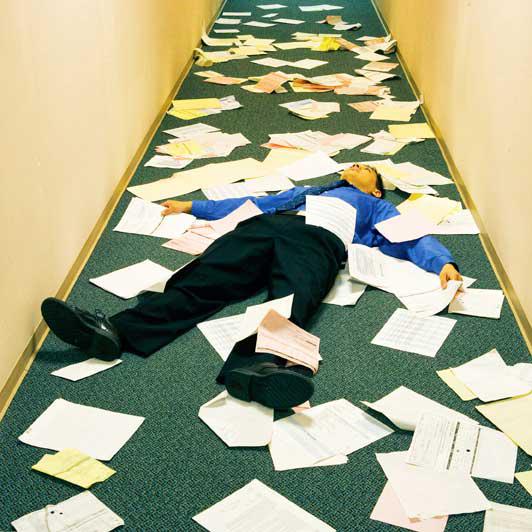May 08 2023
By: Shawn M. Galloway
A close friend is putting in a pool and outdoor kitchen at his newly built home. The contractor, a mid-40s guy in physically great shape working hard in and on his business, died of a heart attack last weekend.
Many companies and societies value hard work, burning the candle at both ends, getting in earlier, and leaving later than the boss. At sixteen, my father advised, "Shawn, no one will ever owe you a job; you must show and demonstrate new value every day." I have an incredibly strong work ethic because of intrinsic, not extrinsic, motivation. Because of staffing shortages or operational issues, some employees are forced to work overtime, extrinsic.  Others actively pursue overtime for extra income, intrinsic. Whatever motivates it, how many hours a week is too many?
Others actively pursue overtime for extra income, intrinsic. Whatever motivates it, how many hours a week is too many?
According to an analysis of the loss of life and health associated with working long hours conducted by the World Health Organization and the International Labour Organization, the answer is fifty-five. "The study concludes that working 55 or more hours per week is associated with an estimated 35% higher risk of a stroke and a 17% higher risk of dying from ischemic heart disease, compared to working 35-40 hours a week."1
In the 1970s, Japan began recognizing this correlation of overwork death and named it Karoshi.2 It seems my friend's contractor died of Karoshi. When we look at risks in an occupational setting, they are not just physical or behavioral. Pursuing excellence requires us to also consider the complete person. Their health, diet, psychological and work balance matter as well.
How many of your employees are at risk of Karoshi? Consider adding these leading indicators to your safety or risk scorecard, the average amount of overtime and the number of employees working more than 50 hours a week. You identified a workplace risk if this is a substantial number of individuals. Now, what are you going to do about it?
"Real wealth is discretionary time. Money is simply fuel for your life. You can always make another dollar, but you can't make another minute. Don't let the pursuit of money erode your wealth." — Alan Weiss
"Whether it's the best of times or the worst of times, it's the only time we've got." — Art Buchwald
"Fatigue makes fools of us all. It robs you of your skills and your judgment, and it blinds you to creative solutions. It's the best-conditioned athlete, not the most talented, who generally wins when the going gets tough." — Harvey Mackay
Source 2: Karoshi. In Wikipedia.

Shawn Galloway, CEO of ProAct Safety, is an expert in safety excellence. With almost thirty years of experience, he is a highly sought-after advisor, keynote speaker, and expert witness. Shawn has become a trusted partner to leading organizations across various industries worldwide. He ranks in the top 1% of the most prolific writers in his field, having authored over 500 articles and several bestselling books. He also launched the world's first safety podcast, Safety Culture Excellence©. As a recognized authority in safety, Shawn has received awards such as being named among the Top 50 People Who Most Influence EHS and a Top 10 Speaker, among others.
He is a regular guest on Bloomberg, Fox News, The Daily Mail, Dubai One, U.S. News & World Report, Sirius Business Radio, Wharton Business Daily, and leading safety magazines and podcasts. Shawn also serves as a member of the Harvard Business Review Advisory Council, Forbes Business Council, and Fast Company Executive Board, enabling his influence to shape safety thinking and strategy at the executive level.
